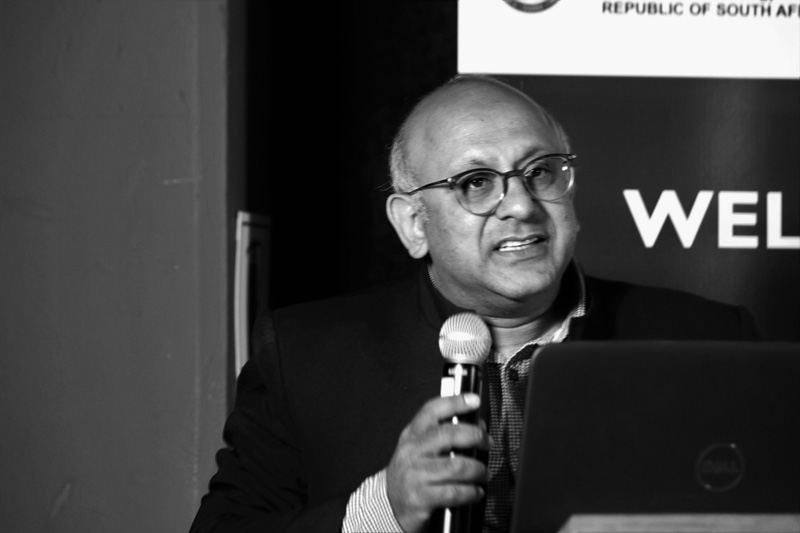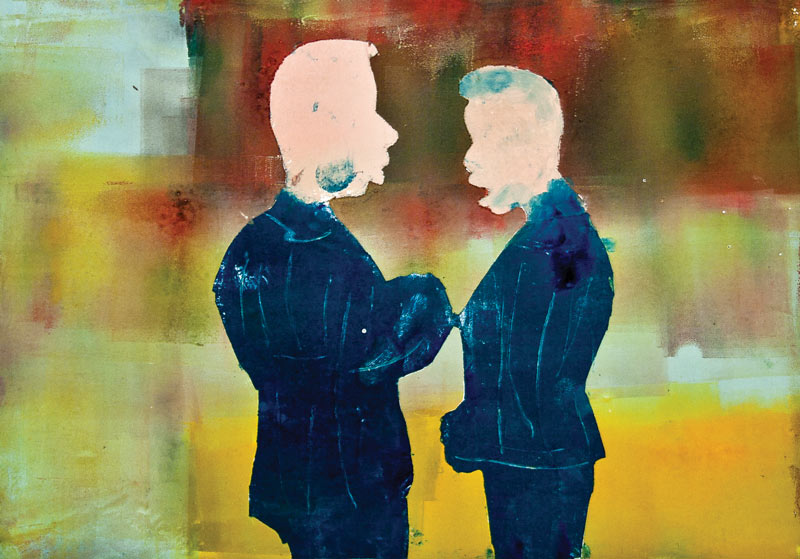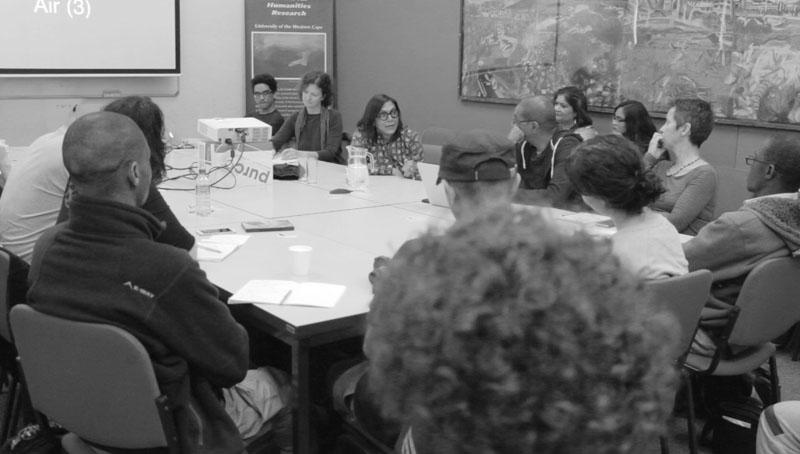About the Centre for Humanities Research.
Since its establishment in 2006, the Centre for Humanities Research (CHR) at the University of the Western Cape (UWC) has provided a new impetus to the role of the humanities in the formulation of ideas and experiments for building a post-apartheid society, in order to offer a new concept of freedom for the world.
A humanities inquiry informed by its location and history, the CHR lends itself to asking pertinent questions that have a significant impact on locating intellectual traditions in Africa in a global discourse on the contemporary human condition. With graduate fellowship and artist-in-residence programmes, the Centre has nurtured a humanities discourse that is responsive to the rapidly shifting terrains of the human in our global moment. The CHR has been shaping a discourse on post-apartheid freedom that explores the relationship between the human, the arts and technology in our contemporary world, especially as these relate to rapidly transforming notions of society and politics. With partnerships across and between institutions, particularly universities, schools, public arts projects, museums, archives and art galleries, the CHR nurtures future generations of humanities graduates, educators and arts and cultural practitioners energized by transhemispheric collaborations that extend the reach of local and international humanities scholarship, as well as opportunities for arts education and cultural production beyond the institutional site of the university.
In the first decade and a half of its establishment the CHR has been unique in developing partnerships across and between institutions, particularly universities, schools, public arts projects, museums, archives and art galleries, while nurturing future generations of humanities graduates, educators, and cultural practitioners. During this time, the Centre has been committed to thinking the challenge of what freedom means in and for the world after apartheid. Receiving a National Flagship award from the Department of Science and Innovation – National Research Foundation (DSI-NRF) in 2016, the CHR Flagship coalesces its inquiry around four research platforms: Aesthetics and Politics, Migrating Violence, the Becoming Technical of the Human, and the NRF SARChI Chair in Visual History and Theory; and is anchored by three core principles: TMindful of what it means to be a university in Africa, and alert to the local and the planetary challenges we inherit and inhabit, the CHR’s orientation hinges on three methods of work. he invention of concepts and production of new knowledge adequate to our times; supporting the effective translation of research into the public domain; and placing fellows and artists to work alongside scholars. The CHR understands this as a method that enables focused and inventive inquiry towards renewing the pedagogic projects of academic disciplines, considering emerging research themes and expanding the range of research questions to enhance the training and openness of a next generation of scholars.
Working with and for these core principles, the CHR has overseen the development of a major arts and research facility as part of UWC’s multi-sited campus plan. The Greatmore Humanities Hub (GHH) initiative, in the inner-city neighbourhood of Woodstock, allows for increased mobility across the apartheid divides that structure the life of the city. To this end, the GHH initiative will accommodate several of the projects already inaugurated by the CHR, namely: a Laboratory of Kinetic Objects (in partnership with Handspring Puppet Company); a Documentary Film Training Programme; and a Jazz, Sound, and New Media Programme. The GHH enables the CHR’s vision to be further translated into public domains and to be pressed into new and urgent lines of inquiry. Over the next ten years, the thematic terrains of the CHR’s work will be elaborated around the lines of inquiry, concepts, creation, and practice that emerge in the deep dialogues envisioned for the space.
Alongside new developments at the GHH, the CHR remains anchored in the annual Winter School programme, convened in a longstanding partnership with the SARChI Chair in Social Change at the University of Fort Hare and the Interdisciplinary Centre for the Study of Global Change at the University of Minnesota. The South African Contemporary History and Humanities Seminar is an enduring endeavour with the Department of Historical Studies, running in tandem with our new series on “The Humanities in Session”. The CHR is a critical space in South Africa for graduate education in the Humanities.
The CHR has developed into a critical hub that draws together partnerships with Research Centres and Institutes, as well as actors in the public domain, from across South America, Africa and Asia as well as with major research centres in Europe and North America. Our partnerships, and the critical engagement across these continents, forms a key component in our overarching project of equity and repair in imagining post-apartheid futures.







